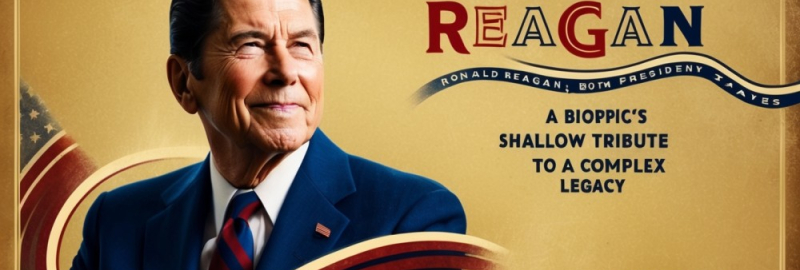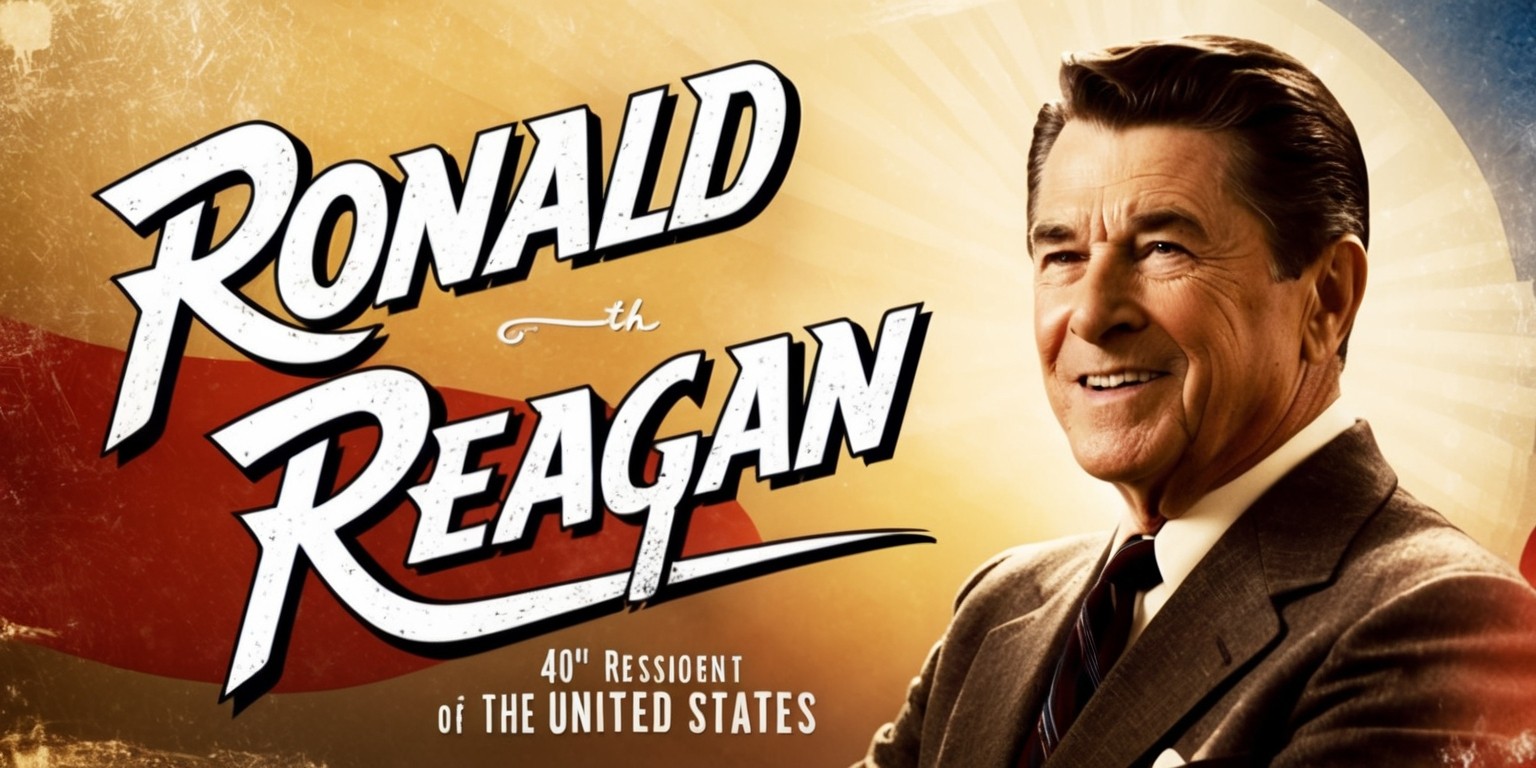
In a politically charged climate, cinema frequently reflects the sentiments of the times, weaving narratives that engage audiences in the ongoing discourse. Amid this landscape, biopics have increasingly become popular, often employing dramatic storytelling to portray the lives of influential figures. The recent film "Reagan" attempts to revive the traditional biographical format, aiming to encapsulate the rise and tenure of one of America’s most iconic presidents. However, this ambitious endeavor falls short, resulting in a hollow representation that lacks depth and authenticity.
Revisiting an Iconic Era
"Reagan" navigates the tumultuous landscape of American politics, intertwining enriched storytelling with a historical backdrop. However, its approach feels reminiscent of films from the 1990s. Rather than offering a fresh perspective, it seems to echo the tones of classics like "Forrest Gump" and "Gandhi," missing an opportunity to reflect on the complexities of Reagan's enduring legacy.
The Framed Narrative
The plot unfolds through the eyes of Viktor Petrovich Ivanov, a retired K.G.B. agent portrayed by Jon Voight. This construct aims to shed light on the life of Ronald Reagan, from his Hollywood beginnings to his political ascent. However, relying on a Russian narrative perspective muddles the portrayal and distracts from the intricacies of Reagan's journey.
A Shallow Biographical Arc
Unfortunately, "Reagan" embodies the 'cradle to grave' biopic style, which often leads to superficial storytelling. While it aims to capture significant milestones in Reagan's life, it abandons a nuanced exploration of pivotal moments that crafted his leadership and public persona.
Character Development Stagnation

One of the film's significant shortcomings is its inability to depict organic character growth. Instead of delving into the complexities of Reagan as a leader and individual, it offers a one-dimensional portrayal, favoring a glorified image over meaningful exploration.
The Idolatry Problem
An overwhelming tendency to idolize Reagan overshadows potential critiques. The narrative eschews controversy, opting instead for crafted anecdotes that paint a flawless image while disregarding the multifaceted nature of his presidency.
Political Climate Reflection
"Reagan" dances around the numerous controversies that defined his presidency. Instead of grappling with contradictory views, the film presents a sanitized version of events, leading to a disjointed representation of a man who stirred dissent and division.
Montages Over Meaningful Context
In lieu of detailed storytelling, the film resorts to a series of montages showcasing Reagan's public charisma. Each scene attempts to convey his magnetic personality rather than contextualizing how his decisions affected the nation and its citizens on various fronts.
Deciding to Sidestep Controversy
Significant aspects of Reagan’s presidency, including his contentious policies regarding civil rights and international relations, are largely ignored. The choice to bypass these discussions further perpetuates a narrow narrative that fails to engage critically with history.
An Incongruous Perspective
Jon Voight’s portrayal of Ivanov adds another layer of dissonance. As an observer of Reagan's legacy, the character’s perspective is strained by an unrealistic and overly reverential portrayal. Furthermore, the age discrepancy only amplifies the disconnect in the storytelling.
Casting Choices and Performance
Dennis Quaid steps into the shoes of Reagan, delivering a performance that skims the surface but does not penetrate the depth of the character. While his charm is palpable, the portrayal fails to transition through the various stages of Reagan’s life convincingly.
The Challenge of Representation
Biopics face a delicate challenge when representing historical figures. "Reagan" grapples with the balance between homage and authenticity, ultimately leaning too heavily on the former, sacrificing the potential for meaningful critique.
Stale Presentation of a Complicated Leader
Rather than inviting audiences to engage with the copious layers of Reagan's persona, the film presents itself as a collection of lighter moments, reducing the intensity of his leadership and the complexities within.
The Audience Divide
For those enamored with the Reagan legacy, this film offers a sense of comfort. However, it starkly alienates viewers yearning for a critical examination of the man behind the myth. In essence, it caters to a specific audience while neglecting broader reflections that encompass differing viewpoints on Reagan’s presidency.
The Question of Worthiness
Ultimately, "Reagan" raises the crucial question of its relevance. While it entertains, it does little to contribute to substantive discussions surrounding Reagan's policies or the intricacies of his character. It flirts with history but does not engage with it meaningfully.
A Final Word on Legacy
In conclusion, "Reagan" encapsulates a fervent nostalgia for a president who sparked admiration for many while being contentious for others. Yet, the film ultimately diminishes his legacy rather than enhances it with a coherent narrative about his life’s complexities. As audiences grapple with the implications of historical representation, "Reagan" stands as a reminder that the narratives we decide to share—or withhold—shape our understanding of the past.
While "Reagan" might find its audience among the president's staunch supporters, it invites criticism from those seeking a richer, more layered portrayal of American history. The need for a movie that examines the imperfections of its subjects remains clear, emphasizing that simplicity in storytelling does little justice to the complexities of history.

Leave a comment
Your comment is awaiting moderation. We save your draft here
0 Comments